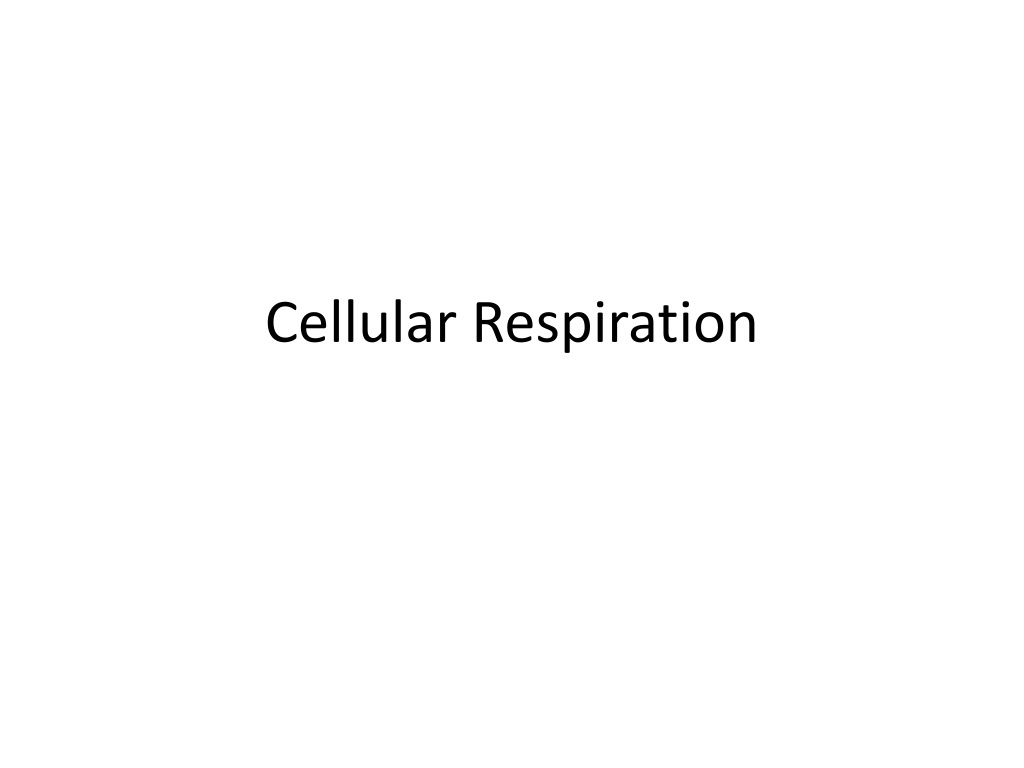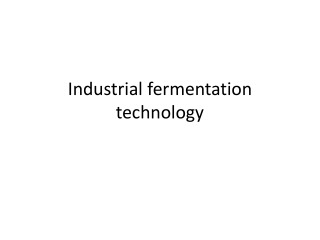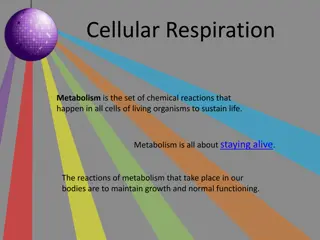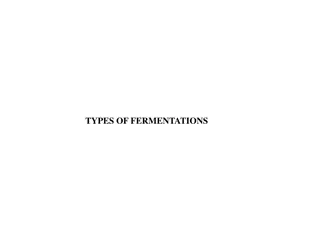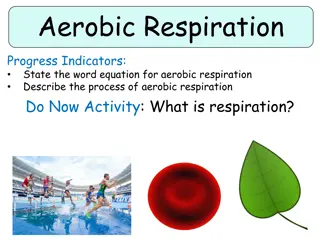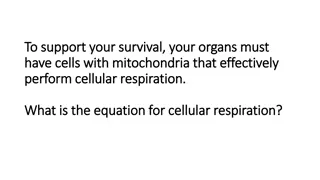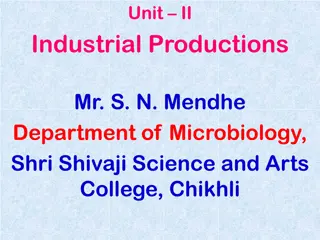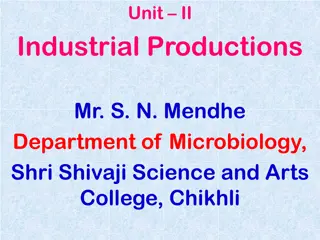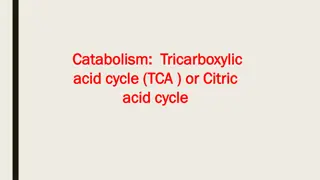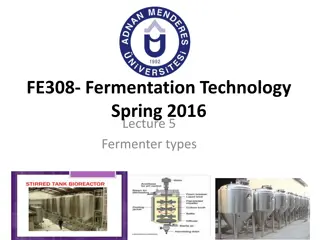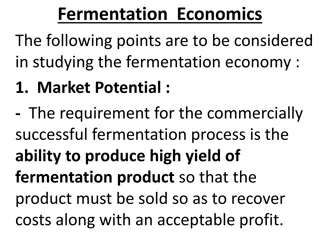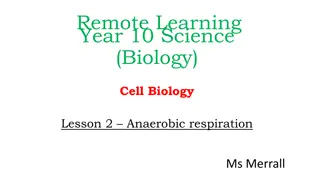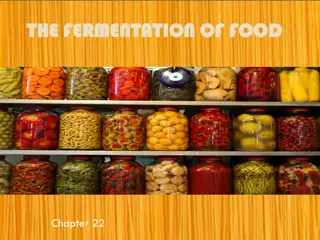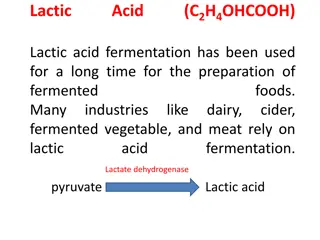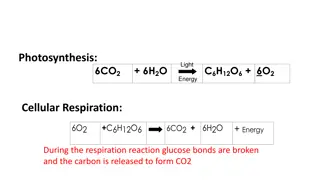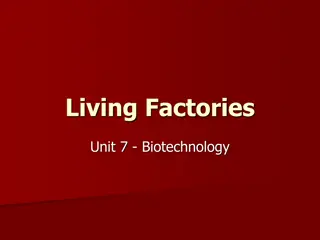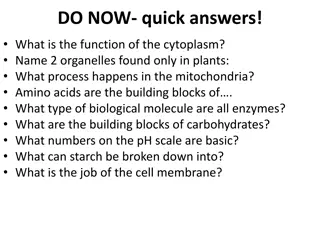Understanding Cellular Respiration and Fermentation Processes
Cellular respiration is the energy-releasing process in which organisms take in glucose and oxygen to produce carbon dioxide, water, and energy. This process is vital for all living organisms. Photosynthesis and respiration are opposite processes, with respiration requiring the products of photosynthesis. Aerobic respiration involves oxygen, while anaerobic fermentation does not. There are two types of fermentation: lactic acid fermentation and alcoholic fermentation, each serving specific purposes in different organisms. Understanding these processes is key to comprehending how organisms generate energy.
Download Presentation

Please find below an Image/Link to download the presentation.
The content on the website is provided AS IS for your information and personal use only. It may not be sold, licensed, or shared on other websites without obtaining consent from the author. Download presentation by click this link. If you encounter any issues during the download, it is possible that the publisher has removed the file from their server.
E N D
Presentation Transcript
Cellular Respiration Energy releasing process in which organisms take in glucose and oxygen and produce carbon dioxide, water and ENERGY
Materials needed for respiration Glucose (sugar) Oxygen
Products of respiration Water (H2O) Carbon Dioxide (CO2) Energy
Compare Respiration to Photosynthesis Both plants and animals perform cellular respiration Photosynthesis and respiration are opposite processes. The materials needed for respiration are the products of photosynthesis. The materials needed for photosynthesis are the products created during respiration.
Photosynthesis and Respiration Equations Photosynthesis Carbon dioxide water light energy glucose oxygen CO2+H2O C6H12O6and O2 Respiration C6H12O6+ O2 CO2+H2O and energy Glucose Oxygen Carbon dioxide water
Aerobic Vs. Anaerobic Aerobic: with oxygen Anaerobic: Without oxygen
Fermentation Energy releasing process that does not require oxygen This is an anaerobic process. Main difference between respiration and fermentation is respiration requires oxygen, fermentation does not.
Two types of Fermentation Lactic Acid Fermentation: Occurs in muscle cells one main product is lactic acid. This occurs when an individual is releasing a lot of energy and may not be obtaining enough oxygen for cellular respiration to occur effectively. For example, you can feel this after running a lot, that burn in your muscles is the lactic acid. Alcoholic fermentation: Occurs in bacteria and yeast. Alcohol is the main product, this type of fermentation is used when baking bread and brewing beer
